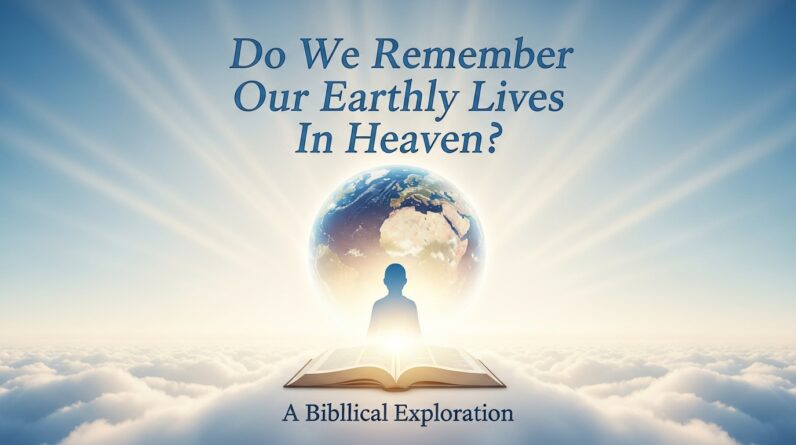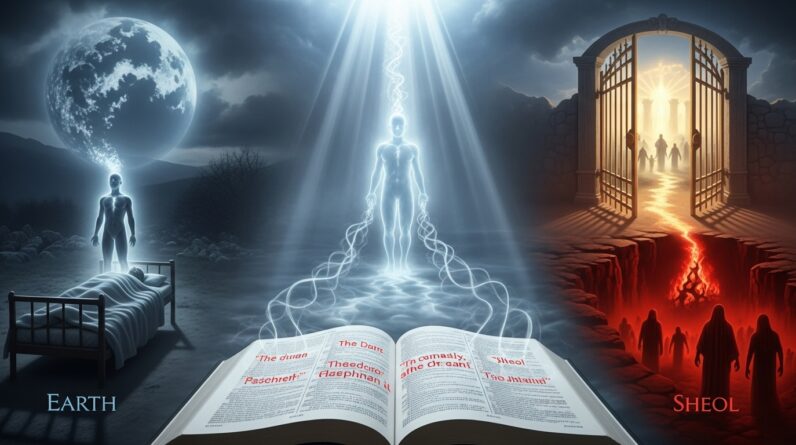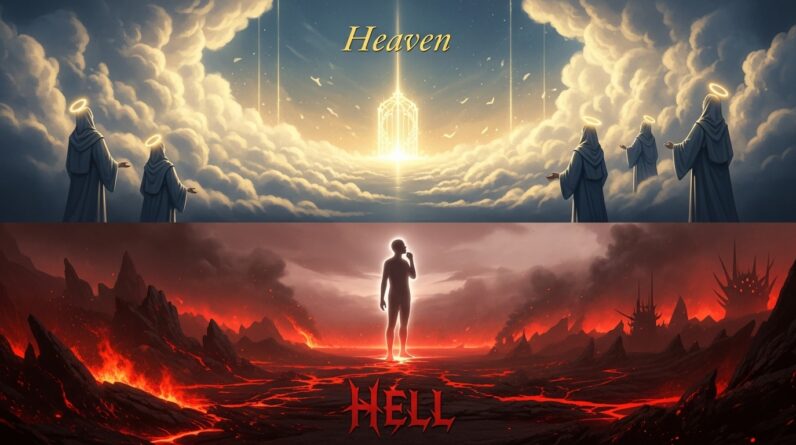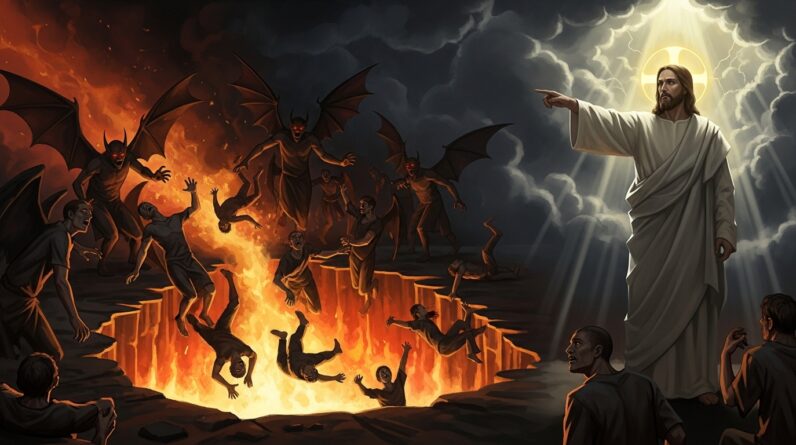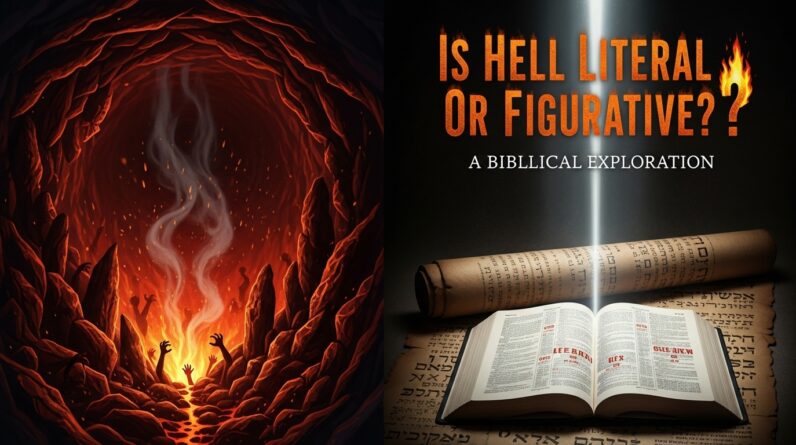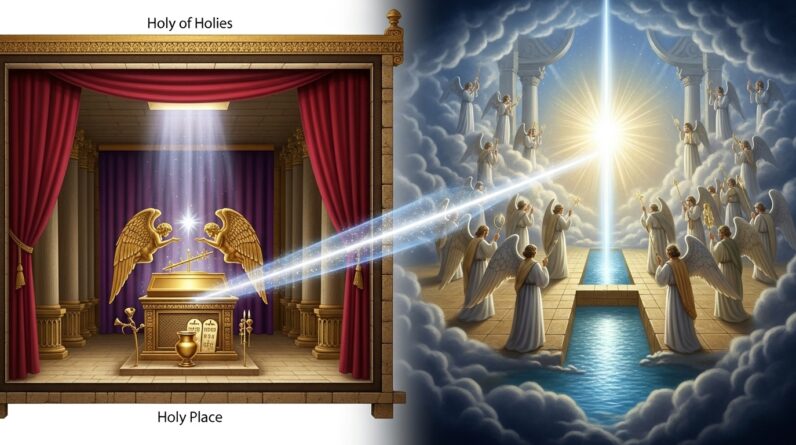What Is Heaven In The Bible? (John 14:2-3, Revelation 21:1-4)

Introduction
Have you ever wondered what heaven will actually be like? Maybe you’ve asked that question sitting beside a hospital bed, during a quiet morning with your Bible, or after losing someone you love. The idea of “heaven” carries comfort, mystery, and sometimes confusion. In the Bible, two passages stand out as anchors for Christians who are searching for clarity: Jesus’ promise in John 14:2-3 and John’s vision in Revelation 21:1-4.
You’re not alone in wanting a clear, comforting picture. These passages don’t answer every question, but they shape the heart of Christian hope: that God has prepared a real and restorative future for you. In this article, you’ll read those passages, unpack what they mean in simple terms, explore the deeper spiritual truths they reveal, and find practical ways to live in light of that hope.
The Bible Foundation
John 14:2–3 — Jesus’ Promise
Here’s the passage from John, where Jesus speaks directly to his friends:
- John 14:2–3 (NIV): “My Father’s house has many rooms; if that were not so, would I have told you that I am going there to prepare a place for you? And if I go and prepare a place for you, I will come back and take you to be with me that you also may be where I am.”

In plain words, Jesus tells his followers that there’s a place being prepared for them in his Father’s home. He promises to return and bring them to that place so they can be with him. The image is intimate and personal — not a distant idea, but a hospitality metaphor: someone preparing a home and inviting loved ones to join.
Revelation 21:1–4 — John’s Vision of Renewal
John’s vision at the end of the Bible paints a cosmic picture:
- Revelation 21:1–4 (NIV): “Then I saw a new heaven and a new earth, for the first heaven and the first earth had passed away… I saw the Holy City, the new Jerusalem, coming down out of heaven from God, prepared as a bride beautifully dressed for her husband. And I heard a loud voice from the throne saying, ‘Look! God’s dwelling place is now among the people… He will wipe every tear from their eyes. There will be no more death or mourning or crying or pain, for the old order of things has passed away.’”
In simple terms: this is a vision of total renewal. The brokenness of the present world — suffering, death, sorrow — is not the final word. God promises to dwell with people in a restored creation where pain and death are gone.
Both texts together form the biblical foundation for what Christians mean by “heaven”: a real, God-centered future where relationship, restoration, and the end of sorrow are central.
Understanding the Core Truth
At its core, “heaven” in the Bible is less about floating clouds or detached spiritual realms and more about the presence of God and the renewal of all things. John 14 emphasizes relational intimacy — being where Jesus is. Revelation 21 broadens that intimacy to cosmic renewal — a healed creation where God lives among people.
Put simply: heaven is God’s presence turned into a permanent, transformed reality for those who belong to him. It’s not primarily a place to escape life’s problems; it’s the fulfillment of God’s promise to fix the world’s deepest wounds by living with you in perfect restoration.
This perspective reframes your hope: you’re not waiting for oblivion or a vague “afterlife,” but for a fulfilled relationship and redeemed reality that will change everything wrong now.
Going Deeper — The Hidden Meaning

When Jesus speaks of “many rooms” and John sees a “new heaven and new earth,” they’re drawing on familiar images: hospitality, marriage, and God’s covenant presence with people. The “rooms” imply accommodation and intimacy, a prepared place for specific people. The “bride” image in Revelation speaks of a loving union — God reconnecting with humanity in a faithful, joyful relationship.
Deeper still, these passages confront the reality of pain. Revelation’s promise to wipe away tears is not trivial; it addresses the human heart’s experience of loss. Imagine someone who has walked through the deepest grief; this text says that grief is acknowledged and will be healed. That hidden truth is pastoral: God sees your sorrow and promises a future where sorrow is transformed.
A biblical example that echoes this is the story of Lazarus (John 11). Jesus doesn’t dismiss sorrow; he weeps with Mary and Martha, then demonstrates power over death. That narrative shows both compassion for present pain and a promise of life beyond it — the same dual reality you see in John 14 and Revelation 21.
Modern Connection — Relevance Today
How does this ancient hope matter to your life right now? First, it gives perspective. When you face loss, illness, or injustice, heaven — as God’s presence and renewed creation — reframes your suffering. You’re not enduring random cruelty; you’re holding onto a promise that these things are temporary and will be addressed by God’s justice and compassion.
Second, this hope fuels how you live. If you believe God will make all things new, you’re more likely to invest in kingdom values now: loving others, pursuing justice, caring for creation, and living with sacrificial hope. Your daily choices — kindness, forgiveness, stewardship — become glimpses of the coming reality.
Finally, heaven as God’s presence invites worship and obedience, not to earn points for the afterlife but because your life now is being formed into the image of the One who will welcome you home.
Practical Application — Living the Message

You can let the promise of heaven shape your habits and heart in simple, practical ways:
- Cultivate presence: Practice spiritual rhythms (prayer, Scripture, worship) that help you taste God’s presence now. Even short, honest prayers anchor you to the reality Jesus promises in John 14.
- Live with hope in suffering: When grief knocks, let yourself grieve honestly, but hold the future hope close. Tell someone about your loss, and name that God sees you — Revelation 21’s promise to wipe away tears is pastoral, not abstract.
- Invest in restoration: Volunteer, feed the hungry, advocate for justice, and care for creation. These actions are practical ways to participate in God’s renewing work now.
- Build eternal habits: Make choices that reflect the values of the coming kingdom — generosity, mercy, humility — so your life points toward the reality you believe is coming.
These are small steps, but consistent with the Bible’s picture: heaven changes how you live today.
🌿 Faith Reflection Box
Take a quiet moment and ask yourself: How does believing in a God who prepares a place for me change my priorities this week?
Consider these key takeaways:
- Heaven means God’s presence and the renewal of all things, not escape.
- Jesus promises a personal welcome; Revelation promises cosmic repair.
- Your daily choices matter: live with hope, practice compassion, and invest in God’s restoration now.
Q&A
Q1: Is heaven a physical place you can describe exactly?
- Answer: The Bible uses physical images (rooms, cities, streets of light) to help you imagine heaven, but the descriptions are also symbolic. John 14 uses a home metaphor to emphasize a personal relationship with Jesus. Revelation 21 uses cosmic renewal imagery to show that pain and death will end. So, heaven is both relational (being with Jesus) and real (a renewed creation), but it may not match all the literal pictures. Trust the promises more than trying to map every detail. For the New Heaven and New Earth, see also https://biblestorieshub.com/the-new-heaven-and-new-earth-2/
Q2: Will I recognize loved ones in heaven?
- Answer: Scripture doesn’t give a step-by-step account of identity in heaven, but it does suggest continuity rather than loss. Jesus’ promise to take you where he is (John 14:2–3) and the vision of a gathered, redeemed people (Revelation 21) imply relational continuity. Think of heaven as a relationship restored and transformed — not amnesia, but the fulfillment of love and memory in a healed community. For comfort in grief and more prayer resources, you might find this helpful: https://biblestorieshub.com/how-to-pray-for-peace-when-your-mind-feels-overwhelmed/
Q3: What does “new heaven and new earth” mean for creation?
- Answer: “New heaven and new earth” (Revelation 21:1–4) signals that God will renew the entire created order, not abandon it. That means redemption covers people and the material world. Your care for the environment and for justice matters because it participates in God’s renewing work. The future is not an escape from creation but its restoration, where beauty, justice, and life flourish without the distortion of sin.
Q4: How should belief in heaven influence how I handle fear and anxiety?
- Answer: Belief in heaven gives you perspective: present anxieties are real, but not final. Scripture encourages you to bring worries to God (Philippians 4:6-7). Holding the promise that God will wipe every tear and put an end to suffering helps reorient your heart toward peace and action. Pray honestly, seek pastoral support, and let hope balance your fear with trust in God’s good plan. See also Romans 8:28 (NIV) for encouragement about God’s providence.
Conclusion & Reflection
You’ve walked through Jesus’ personal promise in John 14:2-3 and John’s sweeping vision in Revelation 21:1-4. Together, they show you a hope that’s relational and restorative: a prepared home and a renewed world where God dwells with people, wiping away every tear. That hope doesn’t remove the struggle of today, but it changes your posture toward it — from despair to expectant trust.
A short prayer you can use: Lord Jesus, thank you for preparing a place and promising to make all things new. Help me to live today with hope, compassion, and obedience, trusting that your presence will be my home forever. Amen.

More Inspiration Awaits — Read These Next
👉 For deeper insight into Isaiah 40:31 and how it renews your strength in both faith and daily life
👉 For practical lessons on compassion and neighborliness from the Good Samaritan
👉 For a clear explanation of what we can learn from the Parable of the Good Samaritan
👉 For meaningful insights from the Parable of the Pearl and its hidden treasures
👉 For a deeper look at the Rich Man and Lazarus and what it reveals about the afterlife
👉 For guidance on the Parable of the Ten Virgins and preparing for God’s Kingdom
👉 For clarity on the Parable of the Lamp and how it calls us to shine our light
👉 For insights from the Parable of the Wedding Feast and the meaning behind the invited guests

📘 Jesus and the Woman Caught in Adultery – Grace and Mercy Over Judgement
A powerful retelling of John 8:1-11. This book brings to life the depth of forgiveness, mercy, and God’s unwavering love.
👉 Check it now on Amazon 🛒💥
🔥 “Every great message deserves a home online.” 🌍💬🏡
Don’t let your calling stay hidden. Start a Christian blog or website using Hostinger — with 99.9% uptime, a free domain, and SSL, your voice can shine for God’s glory anytime, anywhere.
💥 Begin today. 🛒 Try it RISK-FREE! ✅
✝️ “Your body is God’s temple — care for it with purpose.” 💪💖🏛️
Renew your energy and restore balance naturally. Mitolyn helps support a healthy metabolism, giving you the vitality to live out God’s calling with strength and confidence.
🔥 Unlock Your Metabolic Power! ⚡Burn More Calories & Feel Great With Mitolyn. 💪
👉 Start Today. 🚀 Check Price Now. 🛒💰
💰 As a ClickBank & Amazon Affiliate, I earn from qualifying purchases.
📖 Acknowledgment: All Bible verses referenced in this article were accessed via Bible Gateway (or Bible Hub).
🚀 Want to explore more? 👉 Dive into our new post on Why Jesus? and experience the 🔥 life-changing truth of the Gospel!



